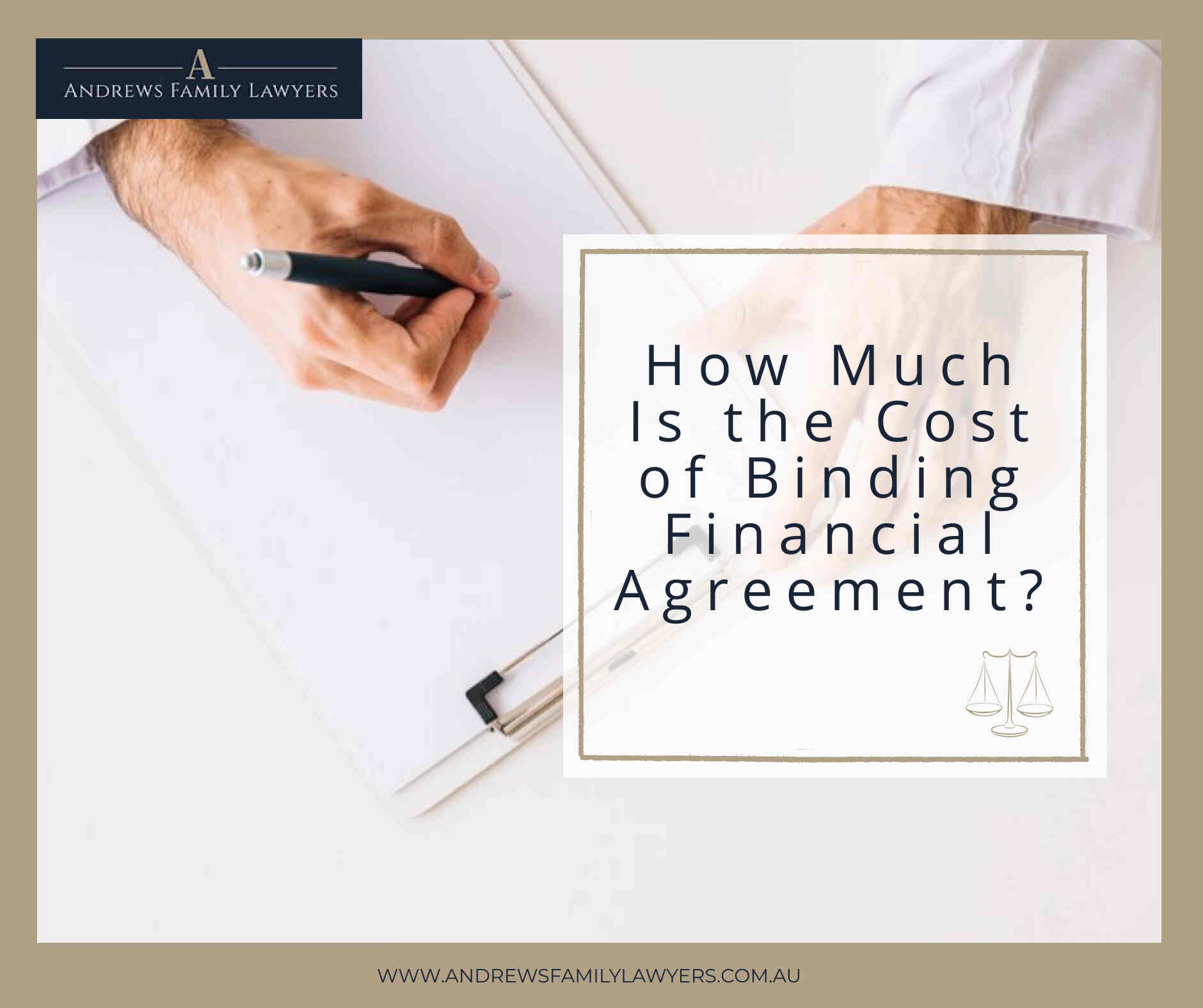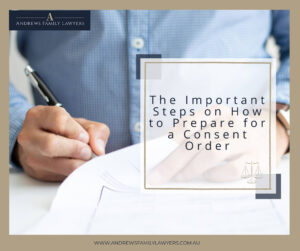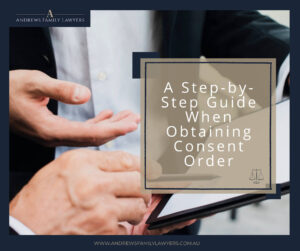After a divorce, spouses must come together to determine how to split their assets. Binding financial agreements are one way to help you do that. But are they right for you? An important factor influencing that decision is the cost of the process.
In this article, we’ll examine the cost of binding financial agreement. This will help you decide whether it’s right for your circumstances.
What is a binding financial agreement?
A binding financial agreement (BFA) is a legally binding contract that sets out how a marital asset pool will be divided after a divorce. BFAs can be entered into at any time. Parties can create a BFA before, during or after a relationship ends. The agreement can cover an entire asset pool or only include specific property.
Requirements for a BFA
BFAs must meet certain criteria in the Family Law Act to be considered legally binding.
Voluntariness
Both parties must enter the agreement voluntarily. There cannot be any duress, undue influence or coercion. Each spouse must also get independent legal advice from a family lawyer before entering the agreement.
Full Financial Disclosure
Both parties must disclose their full financial position. This means providing information on assets, liabilities and other financial resources you can access. This is important because it allows each party and lawyer to accurately understand the asset pool.
Certification of Independent Legal Advice
Both spouses must also receive advice independently from a qualified binding financial agreement lawyer before entering the agreement. Once the lawyer has advised them of the agreement’s merits, they will issue a certificate confirming their client received the advice.
The cost of binding financial agreement
The cost of binding financial agreements depends on many variables. Legal fees can amount to anywhere from $3000 to $10,000 on average. That’s a broad range which reflects the many factors at play. So, what determines the cost of a BFA?
Agreement complexity
Some asset pools are extremely complex and require specialised knowledge to divide properly.
Valuation Challenges
Business interests are often part of property settlements. These interests can be difficult to value. Hiring a professional with specialist knowledge, such as a forensic accountant, is generally necessary.
They’ll examine the business’s cash flow, market conditions and financial statements. Think about a business’s goodwill. While abstract, goodwill can carry a lot of value. This will all add considerable cost to the BFA.
Unique and Rare Assets
Settlements can also face challenges from unique items like art pieces, collectibles, vintage cars, etc. Valuing these items can be difficult for various reasons.
Their market value can often be subjective. Two experts may give a different value for the same asset. If these items form part of the property pool, lawyers will work with specialist appraisers to determine their market value. This process is often complex and expensive.
Cryptocurrencies
Cryptocurrencies have exploded in popularity. As a result, they’re popping up more and more in financial agreements.
However, they can be complicated and expensive. The value of cryptocurrencies changes quickly. It’s important to consider what point in time you value the cryptocurrency. However, assigning a fair dollar value to you and the other party is tricky.
Tracking down cryptocurrencies is also a problem. Cryptocurrencies are decentralised. There’s no authority the Court can subpoena to get information about them.
Complex Ownership Structures
Some assets may be held within complex ownership structures. This includes family trusts, partnerships, or corporate entities. Understanding each party’s ownership interests and entitlement involves different areas of law. These include corporate, tax, and trust law.

Disclosure requirements
Satisfying disclosure requirements incur varying legal costs depending on what’s involved.
Gathering Financial Information
Each party must accurately disclose their finances. Gathering this information can be time-consuming. The parties may have complex financial portfolios or assets across various accounts or jurisdictions.
Negotiations and Revisions
Full financial disclosure often leads to negotiations about the treatment of assets. Disagreements may need multiple rounds of negotiation. This increases legal fees and administrative costs.
Verification and valuation
A family lawyer may need to verify financial information. That can include obtaining tax returns, bank statements and other documentation. This can be time-consuming, which may lead to additional costs.
You may also need specialist valuers for unique or complex financial instruments.
Managing expenses
A BFA’s expenses can get out of hand quickly. But parties can manage the cost.
Clear Communication
Communicating properly helps you avoid unnecessary disputes. Discussing your goals and your finances upfront can help streamline the drafting process. Doing so can reduce the need for extensive negotiations later on.
Define Objectives and Priorities
Define and prioritise the objectives the BFA should cover. Identify critical assets and liabilities you want in the agreement. You can focus negotiations on vital issues. This will make the process simpler.
Choose the Right Lawyer
Hire a family lawyer who has experience drafting BFAs. Their practical approach to the agreement will keep costs down. Look for a lawyer who offers transparent fee structures. Many lawyers offer fixed fees for BFAs.
Consider Alternative Dispute Resolution
Disputes can arise during negotiations. Consider alternative methods for dispute resolution. Mediation is generally the better way to work through conflicts. It’s more efficient and cost-effective than litigation. It’s also less stressful than attending court.

Conclusion
BFAs are flexible. Parties can enter into one at any time. However, they can be costly. Complex asset pools may require valuation experts and drawn-out negotiations.
Good communication and an experienced family lawyer can keep binding financial agreement costs down. You can then draft an effective agreement.
If you want advice on dividing your property, our team can help.




